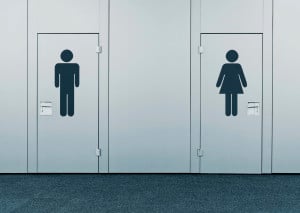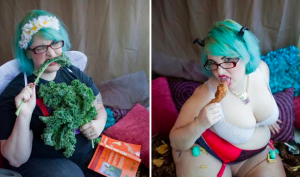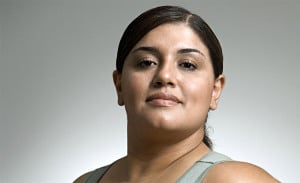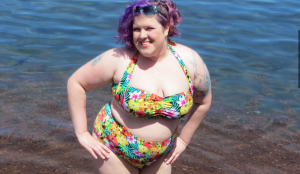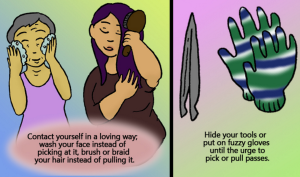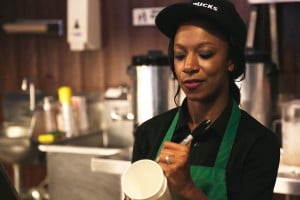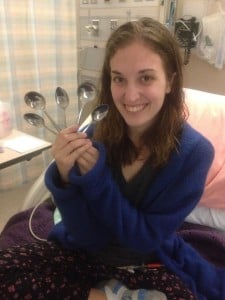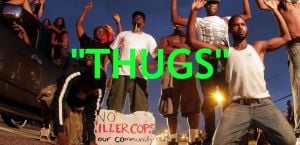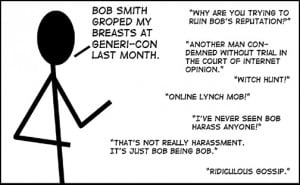
A person leans against a wall, staring pensively into space.
Originally published on Ravishly and republished here with permission.
(Content Note: addiction, sexual violence)
“My name is Britni, and I’m an alcoholic.”
I’ve said those words more times than I can count, and they’re always met with nods of recognition and assurances of “Me, too.”
I’m also a survivor of rape and sexual assault, and it’s a big part of my addiction story.
But, often, saying that aloud is frowned upon, or seen as something taboo to discuss in recovery circles.
I think that’s a damaging precedent, and one that keeps many other trauma survivors from talking about what they’ve gone through and how it’s intertwined with their addiction.
Here are some things I wish I had known about being a trauma survivor seeking recovery.
1. You’re Not Alone
There is a huge overlap between people who have survived trauma and people who struggle with addiction.
Studies have found that somewhere between 50 and 96% of people seeking treatment for substance abuse have experienced some kind of trauma in their life. Up to 34% of people seeking substance abuse treatment have a post-traumatic stress disorder diagnosis.
I don’t believe that I ended up being an alcoholic because I was raped, but I absolutely believe that the trauma fueled my drinking, whether I was conscious of it or not.
After my assault, I stopped drinking to party and started drinking to forget. My story is not unique.
2. Your Addiction Makes Sense in Light Your Experiences
What trauma survivors seek are feelings of safety, an escape from the painful and intrusive memories, a way to numb the painful feelings, and a way to feel in control of their bodies and their world.
Substances can help a person achieve these feelings (or at least the illusion of them).
I drank to feel pretty and not dirty and worthless. I drank to have the courage to let someone touch me. I drank to feel empowered about my own sexuality. I drank so that I wouldn’t feel it when I let men repeatedly take from me what my rapist had that night. I drank so that he couldn’t hurt me anymore.
Because I was hurting myself so much more than he ever could.
3. Your Drinking and Drug Use Were Valid Coping Mechanisms
Alcohol and drugs worked wonders for me. If they didn’t, I wouldn’t have kept using them. Of course, they worked until they didn’t.
A coping mechanism doesn’t have to be healthy for it to be valid, and we’re all just trying to do the best we can with the tools we have.
In order to stay sober, I needed to find new, healthy coping mechanisms, and they had to work at least just as well as substances did.
For me, that was writing, yoga, and twelve-step work. For you, it might be something different.
4. It Might Get Worse Before It Gets Better
I’m almost four years sober, and my PTSD symptoms are worse than they’ve ever been.
According to the book The Courage to Heal, healing from trauma is a process. We move in and out of different stages of the healing process throughout our life, and sometimes we’re more “in” it than others.
For me, what I recognize is that the flashbacks and panic attacks that I’m currently experiencing are actually a sign of progress — I was numb for so long and I’m finally starting to feel things.
Even though those things are hard and painful, I see it as a sign that I’m starting to move through the numbness that characterized me for so long.
5. What Happened to You Wasn’t Your Fault
We’re so good at internalizing messages that teach us to blame ourselves.
And for someone like me, who was intoxicated during all of my assaults, it can be easy to tell myself that I deserved what happened. That that’s what happens to “party girls” like me.
But I want you to know what I know now – that, regardless of the state you were in when you were assaulted, no one but the perpetrator of that assault is responsible for violating you.
6. You’re Worthy of Love
Don’t let anyone tell you otherwise.
I felt worthless and damaged after my assaults. I felt like no one would want me and that I didn’t deserve anyone who would treat me well.
And that’s a bunch of crap.
I’m worthy of love and so are you.
7. You’re Amazing
You’re still here, doing the damn thing. And that means that you’re stronger than you know.
[do_widget id=’text-101′]
Britni de la Cretaz is a feminist momma, community organizer, freelance writer, and recovered alcoholic living in Boston. She’s a founding member of Safe Hub Collective. Follow her on Twitter at @britnidlc. Read her Everyday Feminism articles here.
More from Ravishly:
Search our 3000+ articles!
Read our articles about:
Our online racial justice training
Used by hundreds of universities, non-profits, and businesses.
Click to learn more
Most Read Articles
- « Previous
- 1
- …
- 30
- 31
- 32





